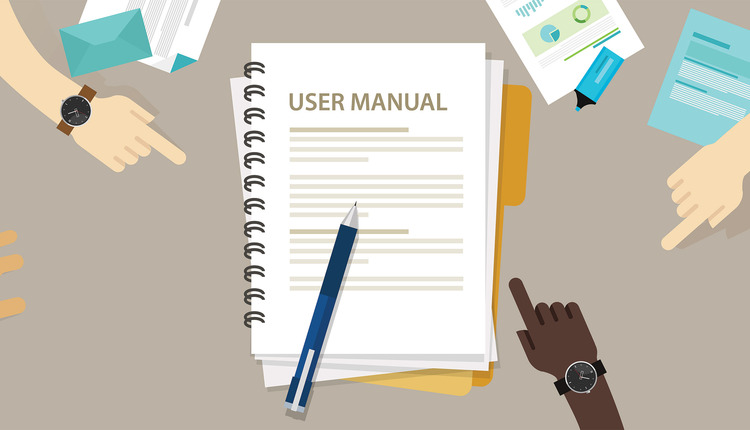There are two major changes occurring July 1 that will have severe implications for some while providing others with great opportunities to grow their businesses. First, let’s take a look at what is changing.
1. USPS international services previously using the UPU terminal dues program are changing to self-declared rates
2. NAFTA (North America Free Trade Agreement) will now domestically be referred to as USMCA (U.S. – Mexico – Canada Agreement)
UPU Changes
USPS international rates tied to changes from the recent Universal Postal Union (UPU) exigent congress last fall are going up. This is great news for US-based shippers competing with low-cost Chinese products utilizing low-cost “terminal dues” that ship for less than domestic shipments. While this leveled the playing field domestically, other countries have also changed their costs via “self-declared rates,” causing problems for US e-commerce exporters. You can read more on that here.
Tracking: e-Packet is the most popular of these services and is currently available through 44 countries for up to 2 KG (4.4 lbs.). For US-based exporters, it is usually accessed via postal consolidators. Unfortunately, as of June 25, 2020, only 14 countries have signed up, and Great Britain is not one of them. Note: Canada, Great Britain (might get added with significant increase), and Australia (available with significant increase) make up about 75% of our outbound e-packet usage.
Cost: Significant increases of greater than 50% might be conservatively common in multiple weight breaks to numerous countries.
Transit Speed: USPS international mail is not flying much currently. There have been six major diversions of air transit that have been shifted to cargo ships, causing excessive delays with little to no updates to tracking.
Alternatives: “Economy International” via international consolidators offers both postal and commercial international shipping options. Many of these have access both to foreign postal networks and in-country courier services to bypass the USPS bottleneck. In addition, they can offer both DDU (Destination Duties Unpaid), like the USPS does, or DDP, where the destination duties are prepaid. DDP often results in fewer returns and a more favorable customer experience, removing the shock and annoyance of having to physically be present to collect the shipment and pay the duties and taxes (D&T). For Canadian shipments, there is also a $10 COD fee on top of D&T.
Advantages for Using an International Consolidator: Faster transits, lower costs, both DDU and DDP options, higher thresholds before D&T are due for Canada and Mexico (see changes to NAFTA later in this article), and for those that need day definite express service, DHL Express is often a key partner of the consolidator’s economy international offerings. These companies specialize in helping their clients grow their international business and offer invaluable assistance as part of their service.
USMCA (U.S. – Mexico – Canada Agreement, aka NAFTA) is also effective July 1. Here, the news is mostly positive for all 3 countries. https://www.trade.gov/usmca
What does it mean for shipments from US to Canada?
Commercial shipments
· Increases the de minimis threshold to $40 CAD for goods shipped to Canada
· Tax will be collected for goods valued between $40 CAD and $150 CAD
· After $150 CAD, both D&T will apply
Postal shipments
· No change
· Postal shipments will continue to have a customs duty and tax remission at the same previous threshold value up to $20 CAD
· DDU shipments to CA that are liable for tax and or duty will be assessed to the consignee for payment, often to include additional fees for collection
What does it mean for shipments from U.S. to Mexico?
Commercial shipments (Hybrid/ Express providers)
· The de minimis threshold of $50 USD for goods shipped to Mexico remains the same
· Tax will be collected for goods valued between $50 USD and $117 USD
· After $117 USD, both D&T will apply
Postal shipments
· Will continue to have a customs D&T remission threshold value up to $300 USD
Alternatives for offshore shippers to mitigate costs:
Break Bulk / Freight Forwarder solutions:
· By packaging orders at the country of origin, labeling for the domestic delivery for each individual shipment
· Shippers then consolidate into a freight movement and import under an informal customs entry using section 321 clearance type 86, where individual orders under $800 are T&D free
· Once the shipments are domiciled in the US, they are often injected into the USPS network for final-mile delivery
US-Based Fulfillment:
· International high-volume shippers of lightweight products into the US may also consider placing those fast moving, high volume SKUs in a regionalized US based fulfillment
· This would ensure greater success in getting the product in the consumer’s hands faster and more effectively
Summary
· 95% of the world’s e-commerce buying power exists outside the USA. For merchants and shippers that wish to grow their business internationally, creating the right customer expectation is critical. Using shipping providers that provide different levels of service will allow the seller and shipper to meet expectations, thus resulting in a good customer buying experience, where the international consumer is more likely to be a returning customer.
· Shippers utilizing the USPS for international e-commerce should look for alternatives and compare pricing and services for the countries they ship to.
· Shippers should consider utilizing third-party experts to help them grow their international volume and help them choose the best options for reducing costs and minimizing returns.
· The changes to NAFTA offer alternatives to leverage commercial shippers to reduce both freight costs and the accompanying D&T.
· There is a lot to absorb. I encourage you to reach out to your international rep or your third-party consultant and discuss and strategize on how you can best leverage these changes.
Wishing you great shipping success.
Gordon Glazer, CMDSM, CMDSS, MDP, MDC is a Senior Consultant, USPS Specialist at Shipware LLC, an innovative parcel audit and consulting firm that helps volume parcel shippers reduce shipping costs 10%-30%. Gordon is a postal industry veteran with 34 years’ experience and is a sought-after speaker and industry thought leader. He welcomes your questions and comments and can be reached at 858-724-0457 or gordon@shipware.com.








